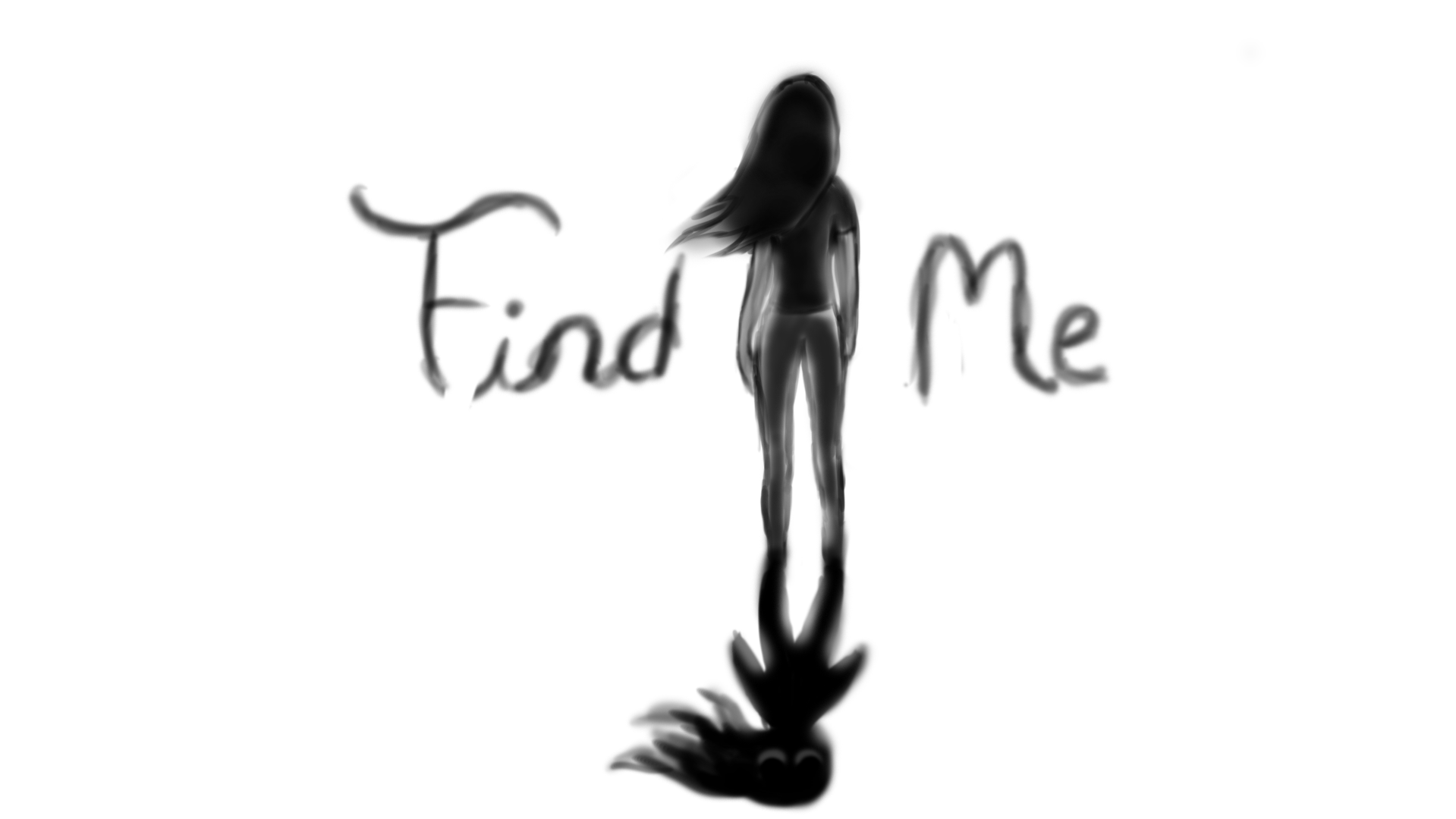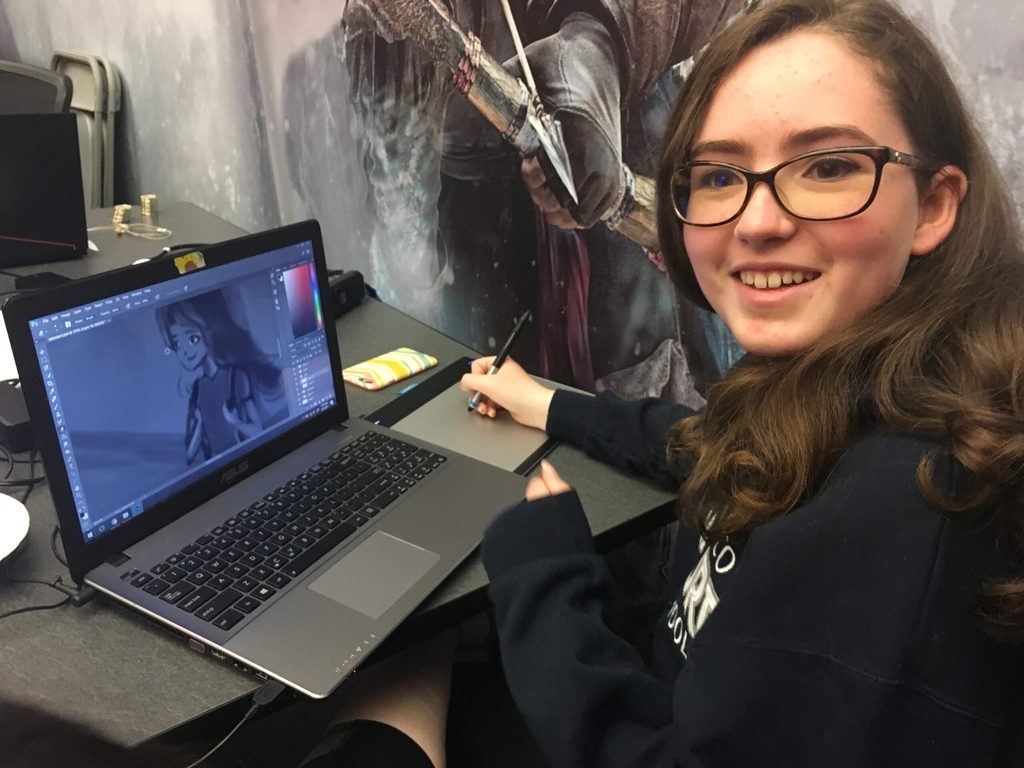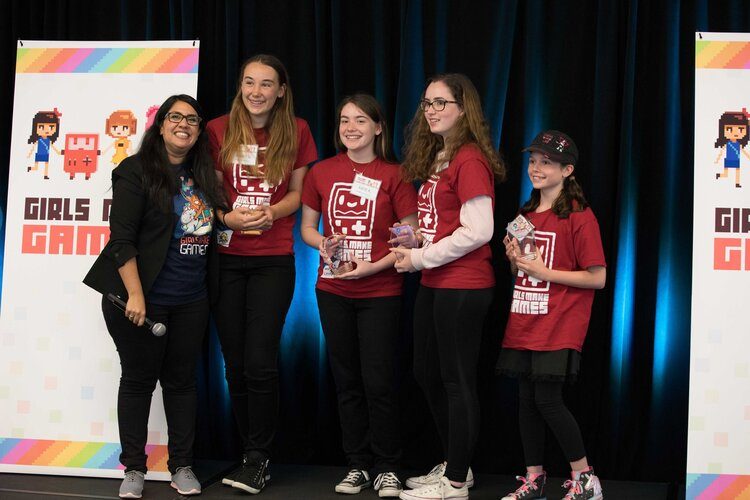Celebrating the next generation of female game developers during Women’s History Month

When I think about Girls Make Games (GMG) and my journey since co-founding the organization, I am sometimes at a loss for words. It is so meaningful to me to be part of something that inspires young women to pursue careers in game development through game jams, summer camps, and workshops. With help from Sony Interactive Entertainment and other industry leaders, GMG has introduced more than 20,000 girls worldwide to the possibilities offered by this dynamic industry.
As we celebrate Women’s History Month, I’m proud to shine a light on a game brought to life by a remarkable team of girls with help from Sony Interactive Entertainment, Find Me. This unique and original game is about reuniting a lost shadow with her human counterpart and will soon launch on PlayStation and become the second release from GMG alumni to make its way to PS Store, following in the footsteps of 2019’s Interfectorem. Created by a team of four girls, aged 11 to 16, the game was presented at GMG’s 2017 Demo Days to a judging panel and came away with the Grand Prize – to have their game crowdfunded and professionally published through PlayStation.
To celebrate the next generation of female game developers and introduce Find Me as a great example of the impact camp at GMG can have, I caught up with two of the creators, Katie A. and Avalon B., to get their thoughts on their experience as we get closer to launch – and as we continue to celebrate the achievement of incredible women and girls.
Find Me Game Launch Trailer
Inspiring the Female Future of Game Development
“It was kind of nerve-wracking at first,” explains Katie, who was just 16 years old at the time. “I had flown from Chicago all the way to San Francisco by myself. I was really nervous about meeting new people. But once I got there, it was really welcoming and really fun to meet everyone and hang out as we learned together.”
Launching a game is a significant endeavor for even accomplished developers, and GMG teaches girls a wide range of invaluable skills that will help them realize their ideas. Katie explains, “It’s helped me kind of realize what development processes involve, how marketing and publishing works out, what it takes to actually push a game out. So that has been really helpful in keeping my mind open and understanding how long these things actually take.”
“I got more sneak peeks into the gaming industry, and I got to explore a lot of different offices, like the PlayStation office in San Mateo, and it was neat to see those kinds of things,” says Avalon, who launched her first game at age 13. “I don’t think a lot of people have opportunities like that all the time. It teaches you more of the process of making games, and it’s really helpful to know and be prepared before you get into the industry more.”
Some kids express through art, some express through music, some express through sports. Each year at camp, I get to see how girls use games as a way to express themselves. Part of our mission is for kids to see for themselves and realize their potential. I love to see girls come in and just completely focus on this really wholesome thing, and at the end of the day, feel like, ‘Hey, I accomplished one thing; who knows what else I could accomplish tomorrow.’
“I think it’s a really cool accomplishment for sure, to realize, ‘wow, I did that’,” said Avalon. “Especially for me now, I have two games out. I always thought that I was going to be an artist for the entertainment industry, video games, or movies at some point. But without my experience at camp, I don’t know if I would have my own game if it wasn’t for GMG.”
My favorite takeaway for girls is confidence—seeing them shine on that last day of camp when they present their games, seeing the pride in their faces. When they first come in, they’re nervous, they’re not sure. They’ve never coded before, never made a game before. They don’t know if they’ll succeed. And in just 15 days, it’s completely the opposite. It’s hopefully an experience for them to step into the industry and pursue their passion for coding.

Coming Together As a Team
One of the biggest things that kids don’t expect coming into camp is how much they have to learn to work in a team. There are a lot of different ideas. And with a lot of passionate dreamers together, all wanting to make games…they have to learn how to negotiate and also compromise and still work together and make something that they love and feel proud of.
Katie echoed the value of teamwork, “I think one of the most valuable things I learned was that inside of a team, everyone has a role and everyone builds off of each other. No one is really focusing only on their one part. They’re always reaching out to others and they’re collaborating, they’re working together. And that’s how a team should be.”
“I think if we weren’t working as a team that we wouldn’t have had been able to do what we did; it would have been all over the place, and we wouldn’t have finished it. Each of us brought our own piece to the table, and all those pieces fit,” says Avalon.

Gender and Representation in Gaming
While gender representation in a typical coding or game design class might reinforce the perception of games as a male-dominated field, GMG reminds girls that there are others just like them, who love to play games and are interested in game development as a potential career. “On a social level, it’s always nice to have people around you who are interested in the same things, says Katie. “It’s nice to have a place where you feel accepted, a place where you can talk creatively, make new friends, and learn the tools of the trade. With GMG, it’s kind of an opening to find out who you are and what you want to do.”
“I didn’t really have that many friends to play video games with back then,” Avalon adds. “GMG is a really nice place for girls to come together to make connections with other women in the industry. It was just nice to meet other girls who are interested in the same things as you and form more of a community. It’s important to empower each other and to support each other as we all follow what we really would like to do.”
Looking to the Future
We’ve had to adapt the model behind GMG in light of the global pandemic, but our team is busier than ever. We’ve continued doing our virtual programs, and we’ve expanded our offerings. We have workshops every weekend of the year. It’s just a year-round, game-making, fun opportunity for girls. This year, with the way things are globally, we’re still going ahead with virtual events this summer.
Like many organizations, we’re just trying to maintain stability in 2021 and reach as many girls as possible through our virtual weekends and summers camps. Our dream for the future is to set up a self-guided course to take GMG to the next level. It would give GMG the chance to help us reach a lot more girls, and give them the flexibility to participate and learn whenever they want and can.
For students, the future looks bright: “GMG was a turning point for me. Once I was in there and I was working, I knew that this is what I really want to do,” Katie says. “I really want my own studio, to have a campus, be able to create stories that I’m passionate about and resonate with me. I also want to give other people opportunities to create things and set a new standard for the industry.”
Women’s History Month
March is a great time to both celebrate how far women have come, and maybe more importantly to think about how much more women can still continue to accomplish. When people talk about what women are capable of, we haven’t even scratched the surface. In some ways, we have no idea because women haven’t even entered the world yet. For me, this month is a celebration not only of how far we’ve come, but how much farther we can still go together and really, truly for our society to thrive.
To find out more about Girls Make Games visit https://www.girlsmakegames.com



